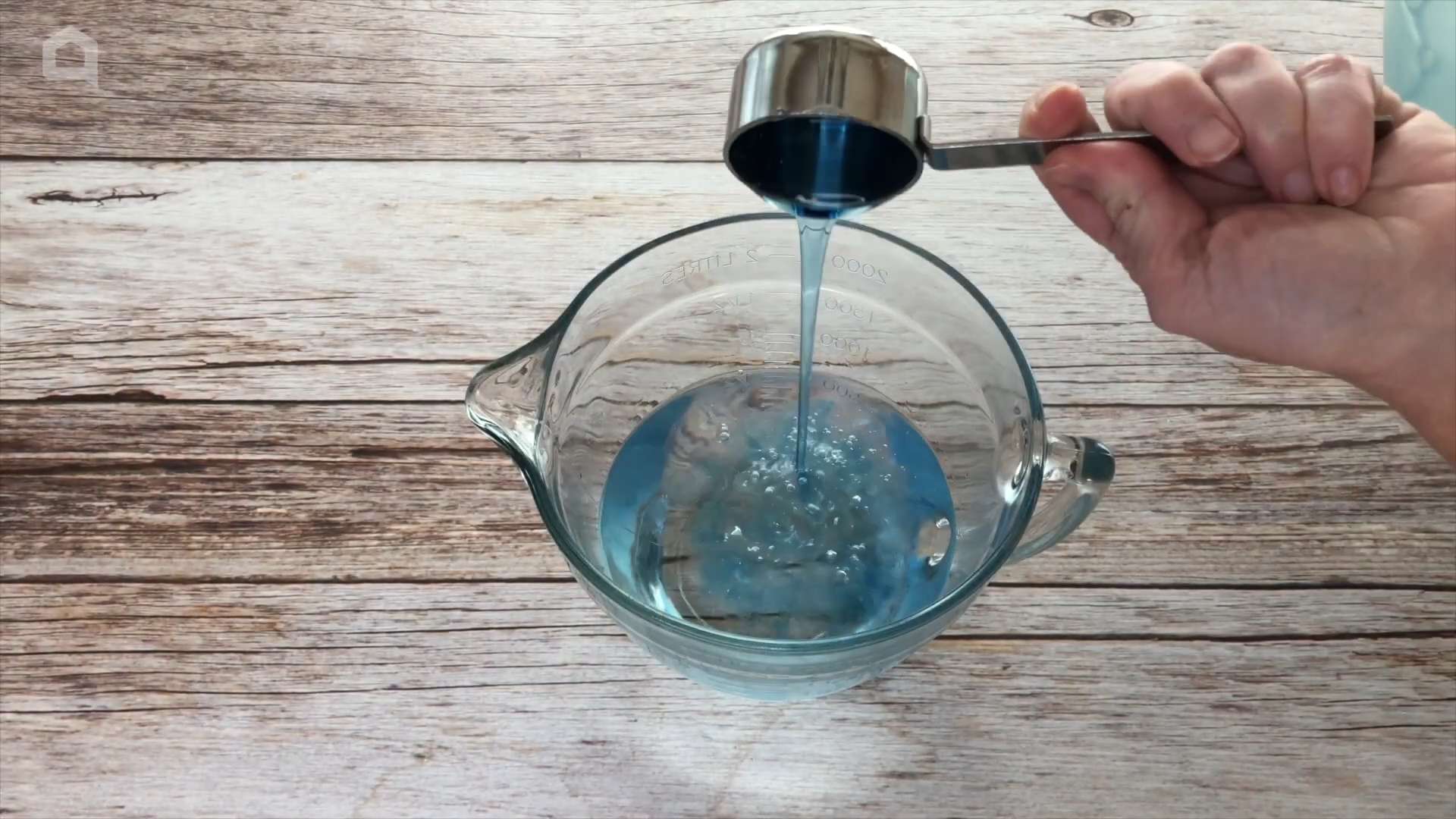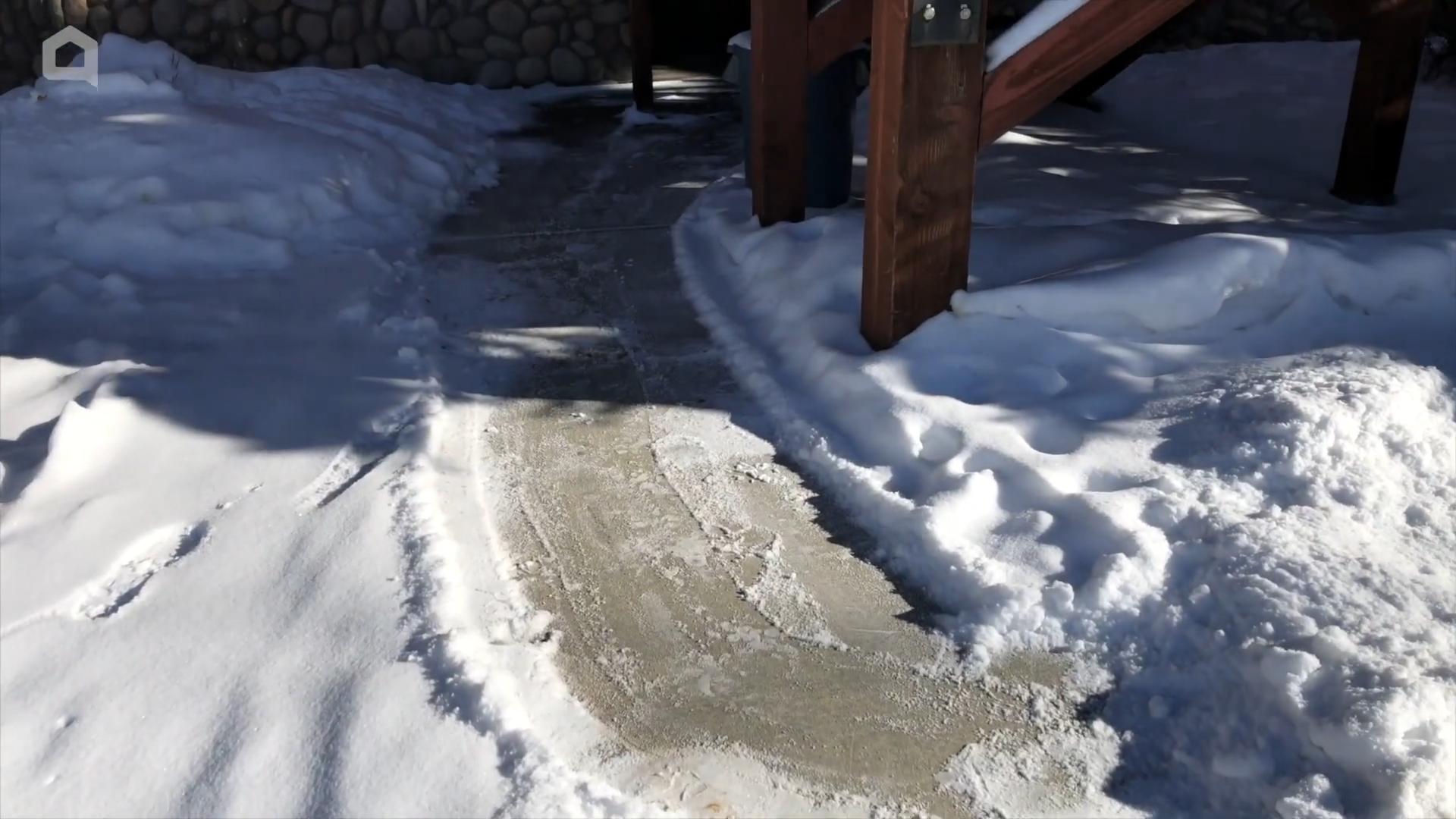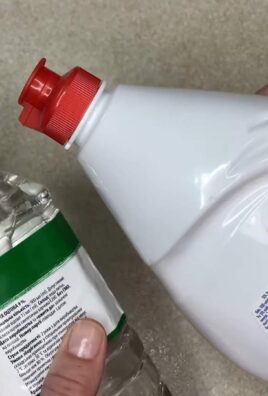Cleaning hacks with alcohol – sounds a bit unconventional, right? But trust me, you’re about to discover a world of sparkling surfaces and germ-free zones, all thanks to that unassuming bottle in your liquor cabinet (or, you know, the rubbing alcohol in your medicine cabinet!). For generations, alcohol has been used not just for celebrations, but also for its potent disinfecting properties. Think about it – surgeons use it to sterilize equipment, and it’s a key ingredient in hand sanitizers.
But did you know that its cleaning prowess extends far beyond the medical field? I’m excited to share some amazing DIY cleaning tricks that will revolutionize your cleaning routine. Forget harsh chemicals and expensive cleaners; alcohol is a surprisingly effective and budget-friendly alternative.
In today’s fast-paced world, who has time to spend hours scrubbing and sanitizing? We all crave simple, effective solutions that save us time and money. That’s where these cleaning hacks with alcohol come in. From banishing stubborn stains to disinfecting everyday items, these tips will help you maintain a clean and healthy home with minimal effort. So, grab your alcohol, and let’s get started on this journey to a cleaner, brighter, and healthier living space!

DIY Cleaning Hacks with Rubbing Alcohol: Your Ultimate Guide
Hey there, fellow cleaning enthusiasts! I’m always on the lookout for budget-friendly and effective ways to keep my home sparkling. And guess what? Rubbing alcohol, that humble bottle in your medicine cabinet, is a cleaning superhero in disguise! Forget expensive specialty cleaners; rubbing alcohol (isopropyl alcohol) can tackle a surprising number of household messes. Let’s dive into some amazing DIY cleaning hacks using this versatile liquid.
What You’ll Need (General Supplies)
Before we get started, here’s a list of common supplies you might need for these hacks. Keep in mind that specific projects might require additional items, which I’ll mention in their respective sections.
* Rubbing alcohol (70% or 91% isopropyl alcohol – I prefer 91% for most cleaning tasks as it evaporates faster and leaves less residue)
* Spray bottles (empty and clean)
* Microfiber cloths (these are my go-to for streak-free cleaning)
* Cotton balls or cotton swabs
* Old toothbrush
* Distilled water (for dilution, if needed)
* Gloves (to protect your hands, especially with prolonged use)
* Measuring cups and spoons (for accurate dilutions)
* Funnel (for easy pouring into spray bottles)
Cleaning Electronics
Electronics are dust magnets and can harbor germs. Rubbing alcohol is a safe and effective way to clean them without damaging the delicate components.
Cleaning Your Phone Screen
Your phone screen is probably dirtier than you think! Think about all the places it goes and all the things you touch before touching your phone.
1. Power Down: Always turn off your phone before cleaning it. This prevents accidental activation and potential damage.
2. Dampen a Microfiber Cloth: Lightly dampen a microfiber cloth with rubbing alcohol. Do not spray alcohol directly onto your phone! You want the cloth to be damp, not soaking wet.
3. Wipe Gently: Gently wipe the screen in a circular motion. Avoid applying too much pressure.
4. Dry with a Clean Cloth: Use a clean, dry microfiber cloth to remove any remaining moisture.
5. Clean the Case: Don’t forget to clean your phone case! You can use a slightly more saturated cloth for this, but still avoid direct spraying.
Cleaning Your Keyboard
Keyboards are notorious for collecting crumbs, dust, and grime.
1. Unplug the Keyboard: Disconnect your keyboard from your computer to prevent accidental keystrokes.
2. Turn it Upside Down: Gently shake the keyboard upside down to dislodge any loose debris.
3. Cotton Swabs to the Rescue: Dip a cotton swab in rubbing alcohol and gently clean between the keys. This is where all the gunk tends to hide.
4. Wipe the Surface: Dampen a microfiber cloth with rubbing alcohol and wipe the surface of the keys.
5. Let it Dry: Allow the keyboard to air dry completely before plugging it back in.
Cleaning Your TV Screen
TV screens are delicate and require a gentle touch.
1. Turn Off the TV: Always turn off your TV before cleaning it.
2. Dust First: Use a dry microfiber cloth to gently dust the screen. This removes loose particles that could scratch the screen during cleaning.
3. Dilute the Alcohol (Optional): For extra caution, you can dilute the rubbing alcohol with distilled water (50/50 ratio).
4. Dampen a Cloth: Lightly dampen a microfiber cloth with the diluted alcohol solution.
5. Wipe Gently: Gently wipe the screen in a circular motion. Avoid applying too much pressure.
6. Dry with a Clean Cloth: Use a clean, dry microfiber cloth to remove any remaining moisture.
Disinfecting Surfaces
Rubbing alcohol is a powerful disinfectant that can kill germs and bacteria on various surfaces.
Disinfecting Countertops
Keep your kitchen and bathroom countertops clean and germ-free.
1. Clear the Area: Remove any items from the countertop.
2. Spray with Alcohol: Spray the countertop with rubbing alcohol.
3. Let it Sit: Allow the alcohol to sit on the surface for at least 30 seconds to kill germs. For optimal disinfection, aim for a contact time of 1-3 minutes.
4. Wipe Clean: Wipe the countertop clean with a microfiber cloth.
Disinfecting Door Knobs and Handles
These high-touch surfaces are breeding grounds for germs.
1. Spray with Alcohol: Spray the door knobs and handles with rubbing alcohol.
2. Wipe Clean: Wipe them clean with a microfiber cloth. Repeat this process regularly, especially during cold and flu season.
Disinfecting Light Switches
Another often-overlooked area that needs regular disinfection.
1. Spray with Alcohol: Spray the light switches with rubbing alcohol.
2. Wipe Clean: Wipe them clean with a microfiber cloth. Be careful not to oversaturate the area, as this could damage the electrical components.
Removing Stains
Rubbing alcohol can be surprisingly effective at removing certain types of stains.
Removing Ink Stains
Accidentally got ink on your clothes or furniture? Rubbing alcohol to the rescue!
1. Test in an Inconspicuous Area: Before applying alcohol to the stain, test it on a hidden area of the fabric to ensure it doesn’t cause discoloration.
2. Dab the Stain: Dampen a cotton ball or clean cloth with rubbing alcohol and gently dab the stain. Avoid rubbing, as this can spread the stain.
3. Blot with a Clean Cloth: Blot the stain with a clean, dry cloth to absorb the ink.
4. Repeat as Needed: Repeat steps 2 and 3 until the stain is gone or significantly reduced.
5. Launder as Usual: Wash the item as usual, following the care instructions on the label.
Removing Permanent Marker Stains
Permanent marker can be a nightmare, but rubbing alcohol can often help.
1. Test in an Inconspicuous Area: As with ink stains, test the alcohol on a hidden area of the surface first.
2. Apply Alcohol: Apply rubbing alcohol directly to the stain.
3. Wipe Away: Wipe away the stain with a clean cloth. You may need to repeat this process several times.
4. Clean with Soap and Water: Once the stain is removed, clean the area with soap and water to remove any remaining alcohol residue.
Removing Hairspray Residue
Hairspray can leave a sticky residue on surfaces like mirrors and countertops.
1. Spray with Alcohol: Spray the affected area with rubbing alcohol.
2. Wipe Clean: Wipe clean with a microfiber cloth. The alcohol will dissolve the hairspray residue, leaving the surface sparkling.
Cleaning Bathroom Fixtures
Rubbing alcohol can help keep your bathroom fixtures clean and shiny.
Cleaning Chrome Fixtures
Chrome fixtures can easily become dull and water-spotted.
1. Spray with Alcohol: Spray the chrome fixtures with rubbing alcohol.
2. Wipe Clean: Wipe them clean with a microfiber cloth. The alcohol will remove water spots and leave the fixtures sparkling.
Cleaning Shower Heads
Shower heads can accumulate mineral deposits and grime.
1. Remove the Shower Head (Optional): If possible, remove the shower head for easier cleaning.
2. Soak in Alcohol: Soak the shower head in a bowl of rubbing alcohol for at least 30 minutes.
3. Scrub with a Brush: Use an old toothbrush to scrub away any remaining mineral deposits.
4. Rinse Thoroughly: Rinse the shower head thoroughly with water before reattaching it.
Other Clever Uses
Here are a few more unexpected ways to use rubbing alcohol around the house.
Freshening Up Shoes
Shoes can harbor bacteria and odors.
1. Spray Inside Shoes: Spray the inside of your shoes with rubbing alcohol.
2. Let Air Dry: Allow the shoes to air dry completely. The alcohol will kill bacteria and help eliminate odors.
Cleaning Eyeglasses
Keep your eyeglasses clean and streak-free.
1. Spray with Alcohol: Spray your eyeglasses with rubbing alcohol.
2. Wipe Clean: Wipe them clean with a microfiber cloth.
Removing Stickers and Labels
Stubborn stickers and labels can be a pain to remove.
1. Apply Alcohol: Apply rubbing alcohol to the sticker or label.
2. Let it Soak: Let the alcohol soak for a few minutes.
3. Peel Away: Gently peel away the sticker or label. The alcohol will loosen the adhesive, making it easier to remove.
Extending the Life of Razor Blades
This one

Conclusion
So, there you have it! This simple yet incredibly effective DIY cleaning trick using alcohol is a game-changer for anyone looking to streamline their cleaning routine and achieve sparkling results with minimal effort. We’ve explored how isopropyl alcohol, a readily available and inexpensive ingredient, can be harnessed to tackle a multitude of cleaning challenges around your home, from banishing stubborn stains to disinfecting surfaces with ease.
The beauty of this method lies in its versatility. While we’ve highlighted several key applications, the possibilities are truly endless. Consider experimenting with different concentrations of alcohol depending on the task at hand. For delicate surfaces, a diluted solution might be best, while tougher stains may require a higher concentration. You can also infuse your alcohol cleaning solution with essential oils like lavender or lemon for a refreshing scent that will leave your home smelling clean and inviting. Another variation is to add a small amount of white vinegar to your alcohol solution for extra cleaning power, especially when dealing with hard water stains or soap scum.
Why is this DIY cleaning trick a must-try? Because it’s effective, affordable, and eco-friendly. You’re reducing your reliance on harsh chemical cleaners, saving money, and creating a healthier living environment for yourself and your family. Plus, the satisfaction of creating your own cleaning solutions and seeing them work wonders is incredibly rewarding.
We’ve shown you how to clean mirrors streak-free, disinfect your phone and other electronics safely, remove permanent marker stains, and even freshen up your shoes. These are just a few examples of the power of alcohol as a cleaning agent. The key is to always test the solution on an inconspicuous area first to ensure it doesn’t damage the surface.
Don’t just take our word for it, though. We wholeheartedly encourage you to try this DIY cleaning trick with alcohol and experience the difference for yourself. We are confident that you will be amazed by the results.
Once you’ve given it a go, we’d love to hear about your experience! Share your tips, tricks, and success stories in the comments below. Let us know what you cleaned, what variations you tried, and any other helpful insights you’ve discovered. Your feedback will not only help other readers but also contribute to a growing community of DIY cleaning enthusiasts. Let’s revolutionize our cleaning routines together, one alcohol-powered solution at a time! We are excited to see how this simple cleaning hack transforms your home and simplifies your life. Remember to always prioritize safety and follow the guidelines provided. Happy cleaning!
Frequently Asked Questions (FAQ)
Is isopropyl alcohol safe to use for cleaning?
Yes, isopropyl alcohol is generally safe to use for cleaning when used properly. However, it’s crucial to take certain precautions. Always ensure adequate ventilation when using alcohol, as the fumes can be irritating. Avoid using it near open flames or heat sources, as it is flammable. When cleaning electronics, make sure the device is turned off and unplugged. It’s also a good idea to wear gloves to protect your skin, especially if you have sensitive skin or are using alcohol frequently. Always test the alcohol solution on an inconspicuous area first to ensure it doesn’t damage the surface. Keep isopropyl alcohol out of reach of children and pets.
What concentration of isopropyl alcohol is best for cleaning?
The ideal concentration of isopropyl alcohol for cleaning depends on the specific task. For general disinfecting, a concentration of 70% is often recommended. This concentration is effective at killing most germs and bacteria. Higher concentrations, such as 90% or 99%, can evaporate too quickly, reducing their contact time with the surface and potentially making them less effective at disinfecting. However, higher concentrations can be useful for removing sticky residues or cleaning electronics, as they contain less water. Always refer to the manufacturer’s instructions for specific cleaning tasks.
Can I use rubbing alcohol on all surfaces?
No, you should not use rubbing alcohol on all surfaces. While it’s safe for many surfaces, it can damage others. Avoid using it on painted surfaces, as it can dissolve the paint. It can also damage certain types of plastics and rubber. Leather and delicate fabrics should also be avoided, as alcohol can dry them out or cause discoloration. Always test the alcohol solution on an inconspicuous area first to ensure it doesn’t damage the surface. When in doubt, consult the manufacturer’s instructions for the surface you’re cleaning.
How do I store isopropyl alcohol safely?
Store isopropyl alcohol in a tightly sealed container in a cool, dry, and well-ventilated area. Keep it away from heat, sparks, open flames, and other sources of ignition. Store it out of reach of children and pets. Do not transfer alcohol to unlabeled containers, as this can lead to accidental misuse. If you need to dispose of isopropyl alcohol, check with your local waste management authority for proper disposal methods.
Can I mix isopropyl alcohol with other cleaning products?
It’s generally not recommended to mix isopropyl alcohol with other cleaning products, especially bleach. Mixing alcohol with bleach can create toxic fumes that can be harmful to your health. Avoid mixing alcohol with ammonia or other strong chemicals as well. It’s best to use alcohol on its own or with water. If you’re unsure about mixing alcohol with another cleaning product, consult a professional cleaning expert.
What are some alternative uses for isopropyl alcohol besides cleaning?
Besides cleaning, isopropyl alcohol has several other uses. It can be used as a hand sanitizer, although it’s important to use a concentration of at least 60% to be effective. It can also be used to relieve muscle pain by applying it topically. Some people use it to treat minor skin irritations, such as insect bites or poison ivy rashes. It can also be used to remove sticky labels or residue from surfaces. However, it’s important to use caution and consult a medical professional before using alcohol for any medical purposes.
How can I make my alcohol cleaning solution smell better?
You can easily add a pleasant scent to your alcohol cleaning solution by adding a few drops of your favorite essential oil. Lavender, lemon, tea tree, and eucalyptus are all popular choices for cleaning solutions. Add a few drops of the essential oil to your alcohol solution and shake well before using. Be sure to use pure essential oils and avoid synthetic fragrances, as they may not be as effective. You can also experiment with different combinations of essential oils to create your own custom scent.
What should I do if I accidentally ingest isopropyl alcohol?
If you accidentally ingest isopropyl alcohol, seek medical attention immediately. Do not induce vomiting unless directed to do so by a medical professional. Call your local poison control center or emergency services for guidance. Isopropyl alcohol is toxic if ingested and can cause serious health problems.
Is using alcohol for cleaning environmentally friendly?
Using isopropyl alcohol for cleaning can be considered more environmentally friendly than using harsh chemical cleaners, as it is biodegradable and breaks down relatively quickly in the environment. However, it’s still important to use it responsibly and avoid excessive use. Consider using diluted solutions and opting for natural cleaning alternatives whenever possible.



Leave a Comment